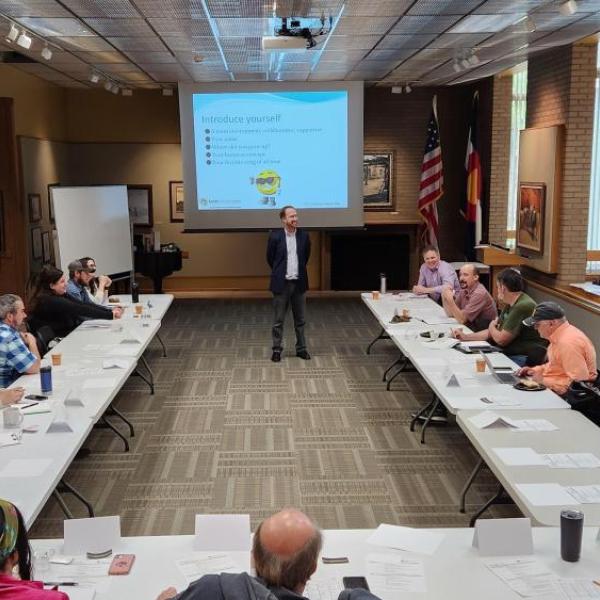
Dear Latrice,
We also love...
James | Denver, CO
So, we’re contributing to a future full of it by making sure Coloradan inventions and discoveries make it to the market.
Campus Location

The University of Colorado is a national leader in startup creation, with a growing suite of entrepreneurial resources that empower innovative researchers to turn ideas into businesses.
Set in the heart of the University of Colorado’s bold, innovative community of scholars and learners, Venture Partners at CU Boulder brings the university’s world-class researchers with the business, startup and entrepreneurial communities to translate groundbreaking solutions into economic and social impact.
As the commercialization arm—also known as “tech transfer” or “research translation”—of the CU Boulder, Colorado Springs and Denver campuses, Venture Partners prepares university researchers, inventors and creators to bring their innovations to market.
$8B | Impact on national economy (from 2018-2022)
$5.2B | Impact on statewide economy (from 2018-2022)
$3B | Capital funding raised by startups commercializing CU Boulder technology (since 2018)
1,340 Inventions disclosed (since 2014)
179 Startups spun out of university technology
A key example is the Embark Deep Tech Startup Creator program by Venture Partners at CU Boulder, which pairs experienced entrepreneurs with breakthrough inventions from the university's labs and provides funding to launch these ventures.
Each year, about 150 inventions emerge from CU Boulder’s labs. While some are spun out by the inventors, many remain untapped. Meanwhile, numerous entrepreneurs are seeking cutting-edge technologies to bring to market but lack access and support. Embark bridges this gap by matching external entrepreneurs with promising, commercialization-ready technologies.
“Just because the university inventors didn’t create a startup company doesn’t mean the technology isn’t a really exciting startup opportunity,” said Bryn Rees, associate vice chancellor for research and innovation and managing director of Venture Partners. “We think some of our very best innovations are available and Embark is a way to catalyze that.” To that end, Venture Partners has curated a list of promising innovations with strong commercial potential from a broad array of scientific and engineering disciplines.
Stephen Miller, co-leader of Embark and director of venture development at Venture Partners, added, “I don’t know of another university that actively and directly recruits entrepreneurs to lead their laboratory startups, especially one that lets them pick the tech they want to take to market.”
Embark addresses the need to pair entrepreneurs with top innovations, curating a list of commercially promising technologies from various scientific and engineering fields. “These were some of our top technologies that we believe could be, and should be, a startup,” said Marta Zgagacz, director of licensing at Venture Partners.
Entrepreneurs can learn about Embark technologies and apply to the program through Venture Partners. Successful applicants dive deeper into the technologies, explore available resources, and meet with the inventors, who may play a role in the startups. After presenting their commercialization plans, selected entrepreneurs gain exclusive partnerships with the university for their chosen technologies. Some will also receive funding, including a six-month part-time salary as founding CEOs and up to $50,000 for technology development.
Supported by grants from CU Boulder and the Colorado Office of Economic Development and International Trade (OEDIT), Embark’s funding also aims to open doors for underrepresented groups in the startup community. “We’re interested in experienced founders, but we also want applications from those earlier in their careers or who otherwise wouldn’t be able to start a venture like this without the salary support,” Rees said. “We hope the funding will diversify our startup founders at the university.”

